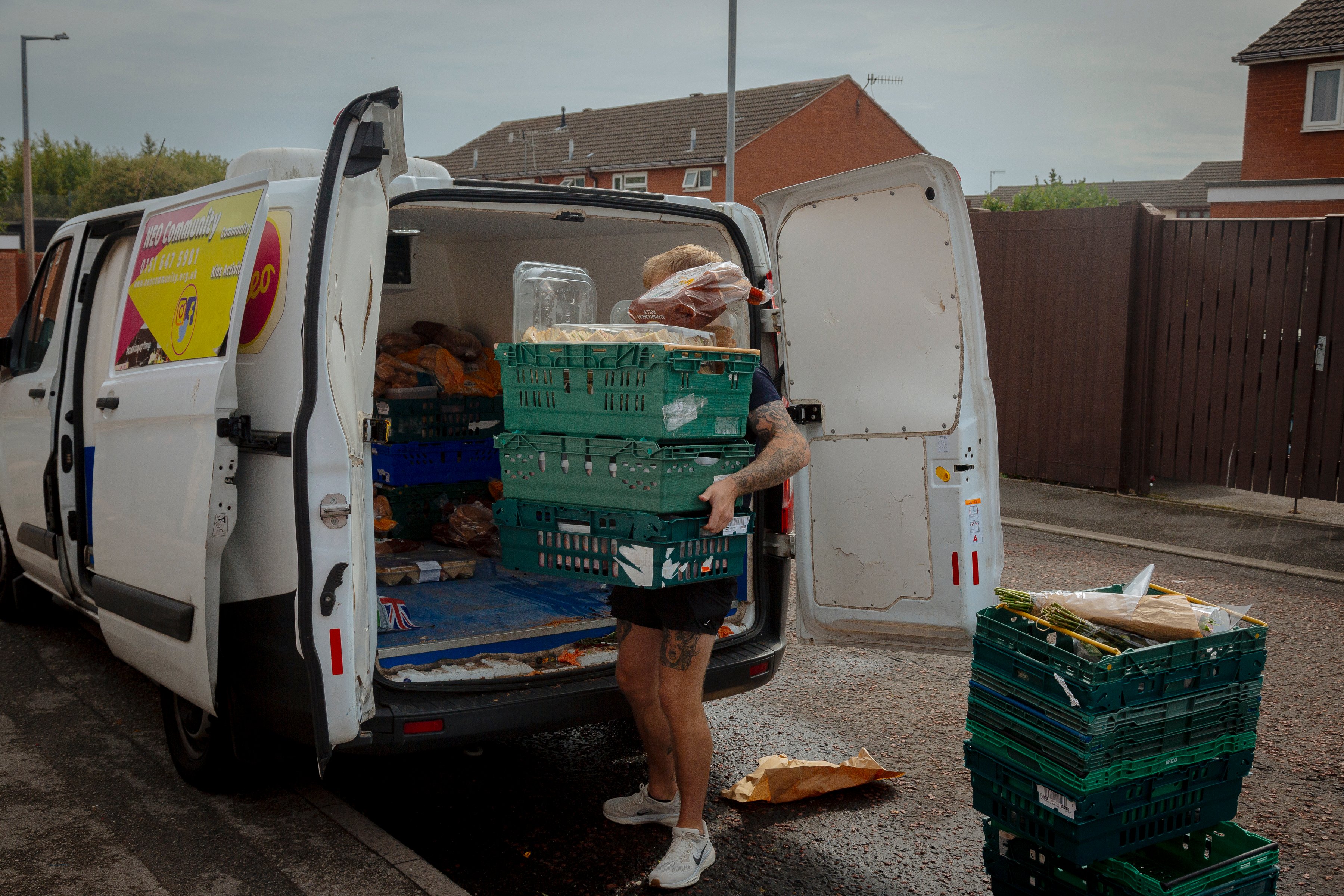Autumn Budget must deliver urgent plan for hardship
The Chancellor's new age of economic insecurity isn't new for millions of people struggling with hunger and hardship. The Budget must have a plan for hardship.
The Government has made a hugely welcome commitment to end the need for emergency food parcels. The Chancellor has also talked about needing to confront a new age of economic insecurity, but deep insecurity is not new for the millions already struggling with hunger and hardship. What is more, the trends will go in the wrong direction if the Government fails to act this autumn.
The upcoming Autumn Budget must improve Universal Credit by embedding a floor into the system, drawing a line below which a Universal Credit payment cannot fall. It should also permanently link Local Housing Allowance (help for low-income private renters) to local rent levels, extend funding for local welfare assistance, and scrap the previous Government’s planned deep benefit cuts for disabled people.
Millions face hunger and hardship
JRF’s most recent cost of living survey with low-income households (bottom 40% of the income distribution) shows the scale and depth of hardship facing families. The survey was carried out in May 2024 and shows:
- 2.9 million households (25%) couldn’t afford to keep their home warm in the previous 6 months
- 4.3 million households (37%) were behind with their household bills
- 5.4 million households (46%) couldn’t afford enough food in the previous 30 days.
What is more, new analysis shows nearly 4 in 10 low-income households (38% or 4.4 million) experienced more than one of these hardships.
Official data is not as timely, nor directly comparable, but it does enable us to look at how the problem has grown since before the pandemic. New JRF analysis looks at the number of people on a lower income (below median) who were either living in food insecurity,1 unable to afford to heat their home, or unable to keep up with bills. We found the number of households experiencing at least one of these hardships had grown by around half since the eve of the pandemic. In 2019/20 it was 3.5 million lower-income households, by 2022/23 it had grown to 5.3 million. Around 1 in 6 of this group had used a foodbank in the previous 12 months.
Hungry, cold people cannot wait
This winter, matters will get worse rather than better if the Government does not take urgent steps to address hardship. High levels of hardship will be exacerbated by another increase in energy prices, the absence of cost of living payments for low-income households, and some low-income pensioners missing out on the winter fuel payment too.
The Government has said it will take time to renew the country because first they must grow the economy. But hungry, cold people cannot wait for the economy to grow before being offered relief. What is more, reducing hardship is economically the right thing to do to support a strong and growing economy. Hardship has consequences for children’s readiness to learn and people’s mental and physical health, impacting employment and earnings both now and in the future. It also results in people having less money to spend locally and feeling less able to take a chance on starting a new business or undertaking a training course. Hardship can also act as a barrier to moving into work.
Reducing hardship leads to greater economic security for households. It also takes some pressure off public services and helps build a firmer foundation for a strong economy.
Urgent plan for hardship in the Budget
For the Government to deliver on its manifesto commitment to end the need for emergency food parcels, we need to see a plan for hardship in the Budget.
At the centre of such a plan should be a bold new policy to improve Universal Credit, which too often fails to protect people from hardship. The basic benefit rate of £91 per week is too low to cover life’s essentials, and it is brought lower still by policies such as debt deductions and the benefit cap. These policies are drivers of hardship, destitution and foodbank use.
We are calling on the Government to embed a floor into the system, drawing a line below which a Universal Credit payment cannot fall. This relatively low-cost, highly targeted intervention would protect people from some of the most damaging aspects of the system that drive hardship.
We estimate that setting the floor at a flat 15% below the standard allowance would immediately improve the finances of around 1.9 million low-income households, by around £48 per month on average. It would cost around £150 million per year, with a small one-off increase in public sector net debt too. This would be a first step towards improving the adequacy of our social security system, starting to move towards a system that guarantees people can afford the essentials.
Help people in hardship now
Alongside this positive policy intervention, further measures are also needed to help people in hardship now and prevent the situation worsening. This would include action to make sure financial support for low-income private renters (known as the local housing allowance) is permanently linked to local rent levels, and scrapping the previous Government’s planned deep benefit cuts for disabled people making new claims from 2025. This latter measure will leave over 400,000 disabled people at least £5,000 per year worse off by 2028/29 than they would otherwise have been.
Steps such as expanding the warm homes discount and making it easier for people with no recourse to public funds to access help when they face hardship would also help protect people at relatively little cost.
In addition to these Budget measures, funding for the Household Support Fund in 2025/26 needs to be confirmed as part of the one-year spending round. This funding has played a crucial role in propping up England’s collapsing system of local welfare assistance. It must be sustained while the system is reformed, to make cash-first crisis support the entry point into a local ecosystem of help to get people back on their feet.
Economic security from the ground up
The Chancellor of the Exchequer has talked of a new age of economic insecurity and wanting to fix the foundations of the economy. But for the millions of people already struggling with hunger and hardship, insecurity is not new, it’s everyday. This autumn the Government must set out a plan for hardship to begin to deliver on the pledge to end the need for food banks. Not only is this morally the right thing to do, it will also begin to build greater economic security for households, taking some pressure off public services and strengthening our economy.
Note
1. Food insecurity means they were either not able to afford enough food, were at risk of this or could not afford enough nutritious food for a healthy and varied diet.

This comment is part of the deep poverty and destitution topic.
Find out more about our work in this area.
